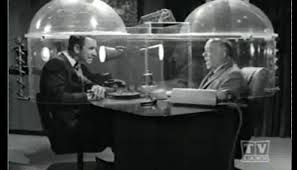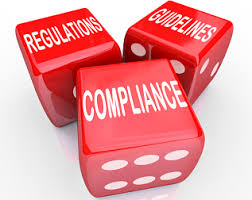The Real Value of Lawyers to Compliance
 The legal profession is transforming itself, especially in the area of compliance. Lawyers are an invaluable part of a compliance program. They provide important perspective and understanding of risk, they help a company to assess and navigate legal risks and they interface with regulators and enforcement agencies.
The legal profession is transforming itself, especially in the area of compliance. Lawyers are an invaluable part of a compliance program. They provide important perspective and understanding of risk, they help a company to assess and navigate legal risks and they interface with regulators and enforcement agencies.
The most effective compliance programs usually are built around a strong partnership between a chief compliance officer and a general counsel. They are natural partners, assuming that egos do not get in the way, and should work together to advance the company’s compliance program.
Lawyers have two very specific benefits that should be incorporated into an effective compliance program.
First, a company must preserve and protect its attorney-client privilege. The attorney-client privilege promotes internal consultations and discussion of legal risks, and ensures that such consultations are free from discovery. A company has to protect its internal communications procedures to manage legal risks, investigate situations where violations may have occurred, and protect the company from enforcement matters while the company is able to determine whether violations have occurred and how to remediate them.
Second, a company should incorporate advice of counsel (either from internal or external counsel) and document such advice to confirm that a company acted in good faith and in accordance with legal advice that such action was permitted. A lawyer’s approval of a contemplated decision can be an important protection against subsequent government scrutiny of a company’s action.
Advice of counsel provides important protection against an enforcement action. For example, if a company approves a third party distributor that involves some degree of risk, the company’s review should include an internal due diligence analysis along with a legal analysis that approves of the due diligence process and the justification for moving forward with possible conditions.
In the event that the distributor engages in bribery and a DOJ and/or SEC investigation is initiated, the company has two separate protections to argue that it conducted reasonable due diligence in advance of approving the distributor. An internal due diligence review was conducted, and the review was approved by the counsel who provided a memo (which can be brief) agreeing with the analysis and decision to move forward, applying standards for conducting due diligence and resolving any red flags.
It is one thing to tell DOJ and the SEC that the company conducted a thorough review of a potential distributor before engaging the distributor – it is quite another thing to add that the matter was reviewed for satisfying legal standards and meeting those standards as confirmed in a legal memorandum included in the distributor’s due diligence file.
 Advice of counsel can be used to support a number of compliance decisions. For example, a risk ranking program for auditing and/or monitoring third party agents and distributors can be reviewed and approved before it is implemented.
Advice of counsel can be used to support a number of compliance decisions. For example, a risk ranking program for auditing and/or monitoring third party agents and distributors can be reviewed and approved before it is implemented.
In other words, advice of counsel can be used in any situation where a compliance officer or any other official exercises significant discretion relating to a potential legal risk. It is important to identify instances where advice of counsel is needed, and ensure that such analysis is part of internal policies, procedures and controls.
One final point – advice of counsel has to be documented. Remember the important rule – if it is not documented, it did not happen. Prosecutors require that companies document their actions to confirm its claim that the company relied on such advice in supporting its action (or inaction).
















1 Response
[…] Read Full Article: The Real Value of Lawyers to Compliance – Corruption, Crime & Compliance […]